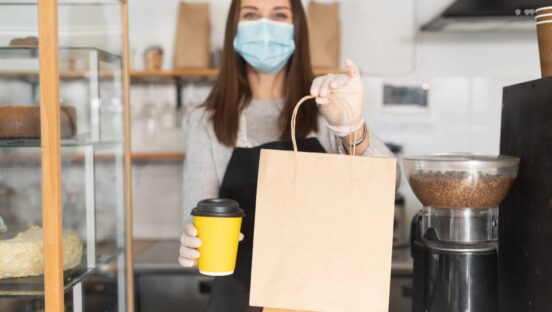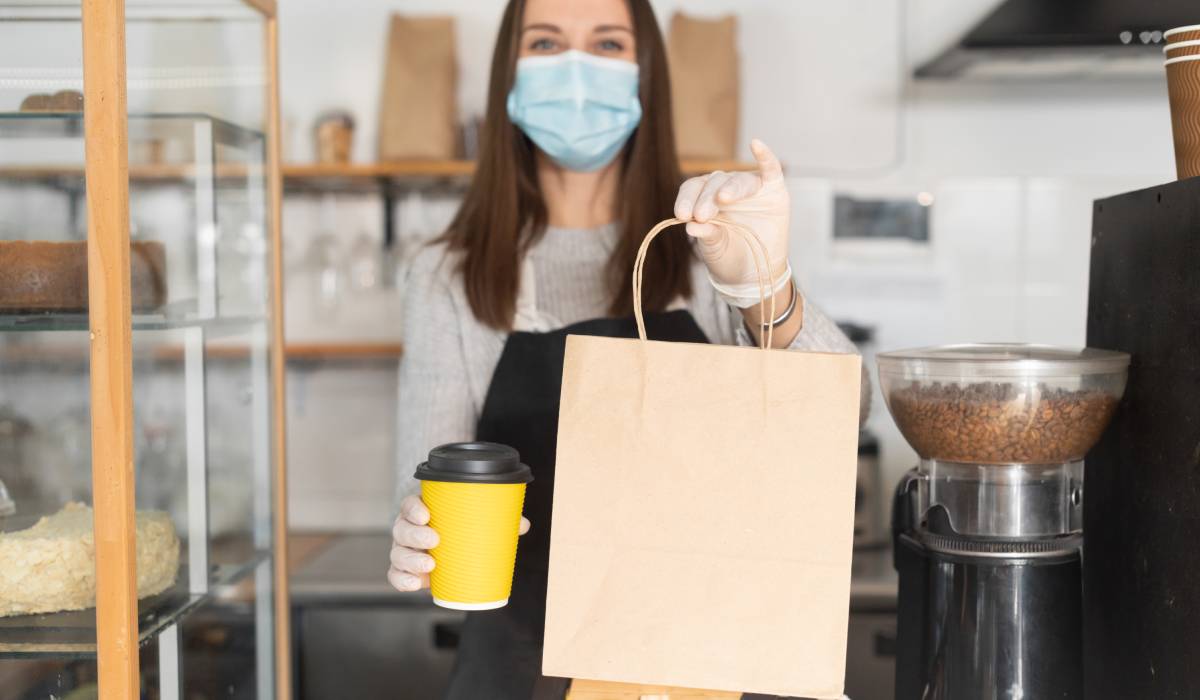While the COVID-19 pandemic has affected nearly every small business, restaurants were one of the hardest-hit industries. According to the National Restaurant Association, estimates of restaurants forced to temporarily or permanently close due to a labor shortage, revenue loss, and restrictions on business interactions and reduced capacity during the pandemic reached over 110,000. Many restaurant operators have looked to their insurance policies for protection during this period of business interruption, but most policies don’t meet their anticipated coverage. Added restrictions, guidelines and recommendations for restaurants have continuously changed since the start of the pandemic, forcing owners to be even more efficient and resourceful to meet customers’ needs and keep their businesses afloat. However, these challenging times in the industry have forced restaurants to rethink and improve not only their business strategies, but also their risk control, best practices, and safety measures to protect both their employees and customers.
Policy Reactions
Throughout the pandemic, the majority of insurance claims were related to loss of income against the property policy, as well as third-party bodily injury against customers related to the pandemic. General Liability insurance protects a business from financial loss should they be liable for property damage or personal injury caused by services, business operations or employees. It provides protection against lawsuits, accidents and additional litigation that could potentially devastate a business. In order for a Covid claim to be valid, the claimant would have to prove the virus was contracted due to the restaurant’s negligence and detail how, when, and where they got sick. All of which could be difficult to pin down.
For the business interruption element to trigger within a property insurance program, there needs to be an insurable physical property damage or loss due to a covered peril. Most property policies apply exclusions relative to virus, mold, bacteria and/or communicable diseases as uncovered risks. With these exclusions and without a direct physical loss to property, property programs do not include protection for business interruption loss relative to a virus. Although these stipulations are not included in current policies, many brokers and agents have recommended clients flag or notice the insurance policies anyway which avoids untimely reporting, and allows for a recordkeeping of loss of income, and the creation of a placeholder with the understanding that a state or federal government could force insurers to provide some level protection in the future. So far, there has been no ratified response from carriers on income loss, business interruption losses or government-led legislation changing carriers’ positions following the pandemic.
Easing the Risk with Prevention Measures
Since there is currently little protection from insurance, restaurant operators are encouraged to increase other measures to improve risk mitigation and safety procedures for employees and customers. Many have implemented more rigorous safety guidelines like increased hand washing and temperature checks at the front door in an effort to keep their employees and customers safe, some requiring vaccinations and mask use. They have also moved to digital menus as opposed to paper menus to reduce “touch points,” as well as increase the frequency of cleaning and disinfecting high-touched surfaces. Given the pressure to operate a safe and clean environment, many restaurants have hired weekly sanitization services to clean and sanitize restaurants, while some have invested in personal sanitizing machines. Further evaluation into their current food safety practices has increased putting a heightened focus on temperature control, preventing cross contamination, and overall food storage processes
Navigating the Industry Post-Pandemic
As the pandemic progressed, many restaurants adapted to online and expanded delivery options. Increased safety measures included providing instructions with delivery orders to customers for food handling. With the rise of restaurants providing delivery services, restaurant operators now must implement fleet safety processes like motor vehicle record (MVR) checks to ensure driver safety. The increase in Hired-Non-Owned Vehicle exposure given the reduction in foot traffic and increase in delivery has made restaurants look to third-party delivery partners such as Uber Eats and Grub Hub to assist in efficiently conducting their businesses. These models bring another layer of added exposure, requiring restaurants having to implement stringent contracts with these providers to ensure they are properly protected from third-party liability. It’s likely to see insurance companies increase and clarify the exclusion of viruses from coverage as a result of the pandemic.
The pandemic has forced restaurant operators to think ahead and make sure they are properly protecting their staff, customers, and dining establishments. As many business operators reference their lack of coverage in their policies following the effects of the pandemic, it’s important to seek out a qualified professional who can offer insights to address shifting business risks that could impact losses and their future insurance coverage. With the help of these qualified insurance professionals and credible risk management advisors, businesses can gain additional protection by reviewing current insurance policies and recommend potential solutions.
Nicole M. Katz is Senior Vice President of Corporate Risk Solutions. She brings over 22 years of experience in the risk management industry specializing in large Property & Casualty programs in various industry sectors including manufacturing, retail, hospitality, financial institutions, and professional services firms. She also serves as an outsourced risk management advisor for a number of CRS’ large multi-national PE investment fund clients. Prior to joining CRS, Nicole held various positions within large brokerage firms, and was most recently the Director of Risk Management and Safety for The New York Racing Association (NYRA).














